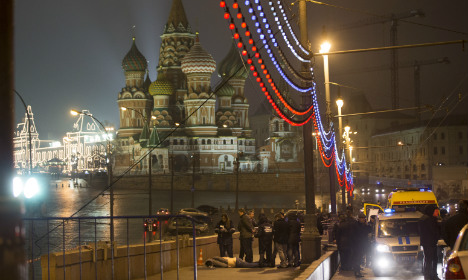"I think everyone is deeply taken by the assassination of Nemtsov. It's an execution. And it is clear that this reinforces the image of Putin's reign of terror when it comes to security, human rights and democracy. This is furthermore one more name to be added to the already long list of, not least journalists, who have lost their lives," Margot Wallström said in an interview with the TT news agency.
In response to a question from a TT journalist whether she was blaming Russian President Vladimir Putin for the killing of the former first deputy prime minister and outspoken critic of the current Russian government, Wallström replied:
"It reinforces a picture where human rights are violated and where, unfortunately, we have seen many murders in recent years that have never been cleared up. There is also a clear picture of how those who are in opposition, and who are critical, are categorized as "you are against us and should disappear or be silenced."


 Please whitelist us to continue reading.
Please whitelist us to continue reading.